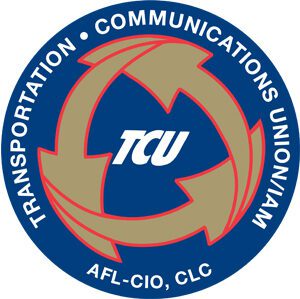Under the Occupational Safety and Health Act of 1970 (OSHA), employers are not only responsible for providing safe and healthful workplaces for their employees, they are prohibited from retaliating against employees who engage in protected whistleblower conduct such as raising safety concerns or reporting injuries and illness.
OSHA continues to vigorously prosecute whistleblower violations, and all TCU/IAM representatives and members should be vigilant for any violations related to injury, safety, or illness. In the three attached cases, OSHA ordered the BNSF and Union Pacific Railroads to restore and compensate employees wrongfully disciplined in violation of whistleblower protections.
While many whistleblower violations have involved retaliation against employees for reporting work-related injuries, the first BNSF case is significant since it concerns an employee disciplined for following a doctor’s orders.
An OSHA investigation found that BNSF violated whistleblower protections by disciplining a conductor for following a physician’s treatment plan. The employee was ill and saw a doctor on December 16, 2013, who ordered him to stay off work the rest of that day and the ensuing weekend. Despite notifying a supervisor immediately and providing the doctor’s note, the employee was disciplined for violating the attendance policy. OSHA ordered BNSF to pay the conductor $12,000 in back wages and damages, and also reasonable attorney’s fees. OSHA’s acting regional administrator in Kansas City, Marsha P. Drumm, sent a strong message to employers and employees alike when she stated, “Workers should never be forced to choose between staying healthy or facing disciplinary action. Whistleblower protections play an important role in keeping workplaces safe. It is not only illegal to discipline an employee for following doctor’s orders, it puts everyone at risk.”
In the second BNSF case, an employee was terminated in retaliation for reporting a workplace shoulder injury. OSHA ordered the Carrier to reinstate the employee and pay him $225,000, including $50,000 in compensatory damages, $150,000 in punitive damages, attorney’s fees, and more than $22,305 in back wages and interest. In both BNSF cases, the Carrier also had to remove the disciplinary information from the employees’ personnel records and provide whistleblower rights information to all its employees.
In another landmark case, OSHA found that Union Pacific violated whistleblower protections when it suspended an employee for video recording a safety test with his cell phone. The employee had notified management that an air compressor onboard a locomotive was unsafe, but he was overruled. The employee took a video while testing the compressor and was suspended after informing the Carrier he had given the video to the FRA. OSHA’s investigation found that using cell phone cameras to record and share safety issues was protected conduct under the FRSA, and there was no evidence the employee had violated Carrier trade secrets. UPRR was ordered to pay the employee $51,000 in damages and wages. Significantly, OSHA also ordered the Carrier to amend its policy of prohibiting cell phone recordings of its activities. OSHA’s regional supervisory investigator, Joshua Paul, said, “The Department of Labor really wanted to highlight that employees can record safety inspections at work. We wanted to make sure that Union Pacific couldn’t retaliate against workers in the future.”
Click here to read the information about the first BNSF Case.
Click here to read the information about the second BNSF case.
Click here to read the information about the UP case.

